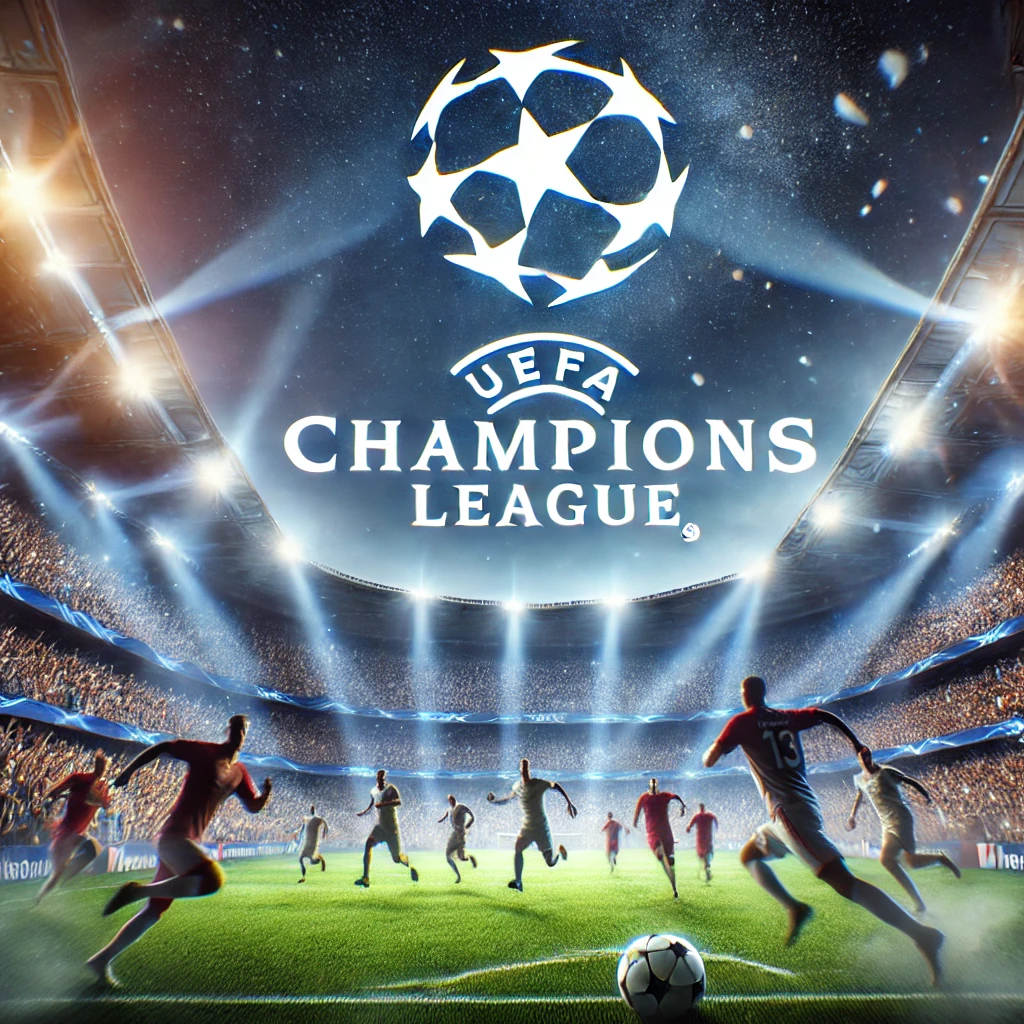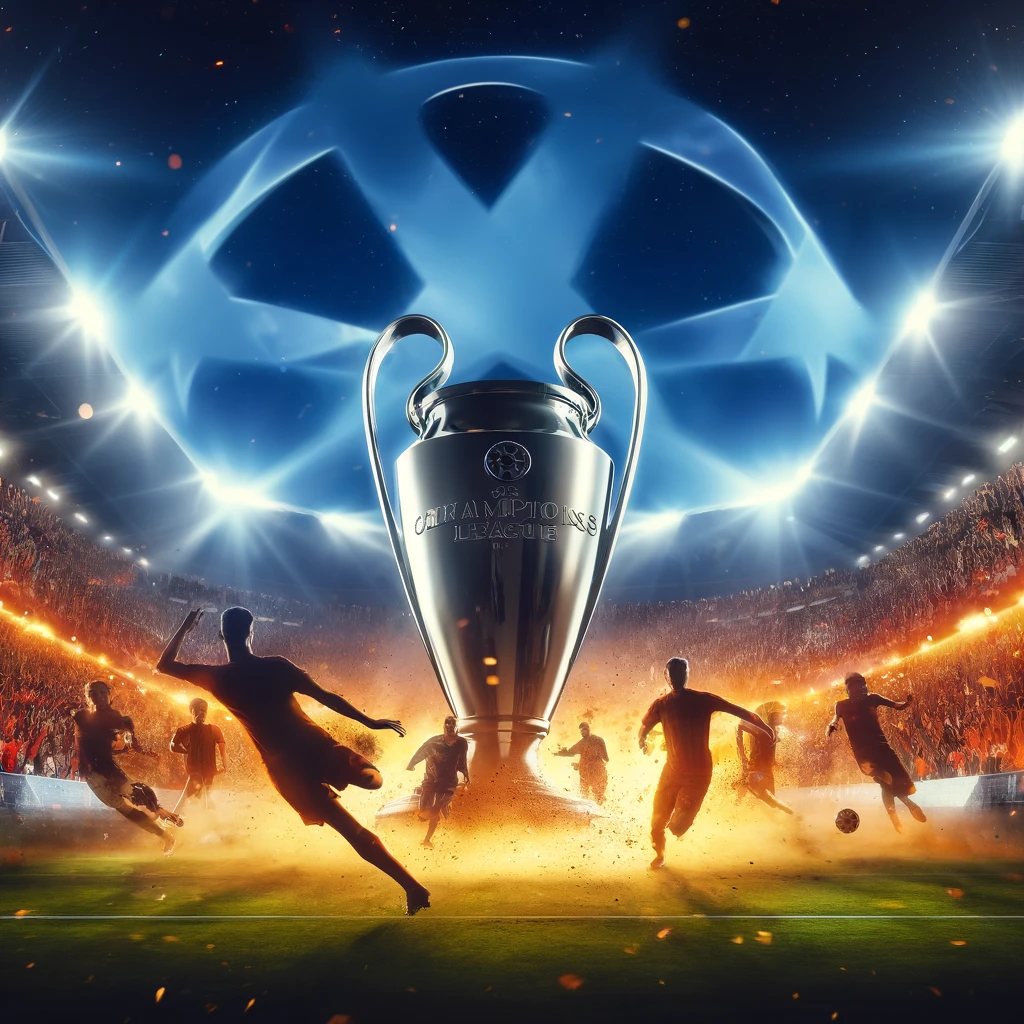UEFA Champions League: The Pinnacle of European Club Football
The UEFA Champions League (UCL) is regarded as the pinnacle of club football, bringing together the elite teams from across Europe to compete for one of the most prestigious trophies in the sport. Since its inception in 1955, the Champions League has captured the imaginations of football fans around the globe, showcasing incredible moments of drama, skill, and teamwork. The competition stands as a symbol of excellence, providing a platform for the world’s best players to compete at the highest level.
In this article, we will explore the history, structure, and cultural significance of the UEFA Champions League, along with the unforgettable moments that have shaped its legacy. We will also highlight some of the greatest clubs and players in its history, as well as the impact it has on European football and beyond.

Origins of the UEFA Champions League
The Champions League, originally known as the European Cup, was established in 1955 to crown the best football team in Europe. The idea was born from French journalist Gabriel Hanot, who, along with his colleague Jacques Ferran, proposed a European club competition that would pit the champions of different national leagues against each other. Their vision became a reality when UEFA (Union of European Football Associations) organized the first European Cup competition in the 1955-1956 season.
The tournament began with just 16 teams, with Real Madrid emerging as the inaugural winners. Real Madrid’s dominance in the early years of the competition was extraordinary, as they won the European Cup five times in a row from 1956 to 1960. Their triumphs set the tone for what would become the most prestigious tournament in club football.
In 1992, the tournament was rebranded as the UEFA Champions League, a name that better reflected the competition’s expanded format. The rebranding brought significant changes, including the introduction of a group stage, which allowed more teams to participate and ensured a greater number of matches. The competition’s popularity grew rapidly, turning it into a global phenomenon.
Champions League Format: From Qualifiers to the Final
The Champions League follows a unique format that includes both a group stage and knockout rounds. The current structure of the tournament allows the best teams from Europe’s top domestic leagues to compete against each other. Here’s a breakdown of the different stages:
1. Qualifying Rounds
The Champions League qualifying rounds take place before the group stage and include several rounds based on the ranking of each country’s league in UEFA’s coefficient system. Teams from lower-ranked leagues begin their journey in the preliminary rounds, while teams from higher-ranked leagues may start in the second or third qualifying round.
2. Group Stage
The group stage is where the tournament truly kicks off, with 32 teams divided into eight groups of four. Each team plays the other teams in its group twice, once at home and once away. The top two teams from each group advance to the knockout stages, while the third-place teams drop down to the UEFA Europa League.
3. Knockout Stage
The knockout stage begins with the Round of 16, followed by the quarterfinals, semifinals, and the final. Each tie in the knockout rounds, except the final, is played over two legs, with each team playing one match at home and one away. The aggregate score over the two legs determines which team advances, and if the score is tied, the away goals rule is used. If the tie is still level, extra time and penalties are used to decide the winner.
4. The Final
The Champions League final is a one-off match played at a neutral venue. It is one of the most anticipated sporting events in the world, watched by millions of fans across the globe. The team that wins the final is crowned European champions and gains automatic entry to the following season’s Champions League, as well as a place in the UEFA Super Cup and FIFA Club World Cup.

Key Moments in Champions League History
Over the years, the Champions League has delivered countless unforgettable moments that have left an indelible mark on football history. From stunning comebacks to legendary performances, here are some of the most iconic moments in the competition’s history:
1. The Miracle of Istanbul (2005)
One of the most famous Champions League finals took place in 2005, when Liverpool faced AC Milan in Istanbul. Milan went into halftime with a 3-0 lead, and it seemed that the game was all but over. However, Liverpool mounted one of the greatest comebacks in football history, scoring three goals in just six minutes in the second half to level the match. The game went to penalties, and Liverpool emerged victorious 3-2, securing their fifth European title in dramatic fashion.
2. Barcelona’s 6-1 Comeback Against PSG (2017)
In the 2016-2017 season, Barcelona faced Paris Saint-Germain (PSG) in the Round of 16. After a 4-0 defeat in the first leg, Barcelona needed a near-impossible victory to advance. Against all odds, they won the second leg 6-1, with Sergi Roberto scoring the decisive goal in the 95th minute. It remains one of the greatest comebacks in the history of the competition.
3. Manchester United’s Dramatic 1999 Final
The 1999 final between Manchester United and Bayern Munich is another example of the Champions League’s knack for drama. Bayern led 1-0 until the 90th minute, but United scored twice in stoppage time through Teddy Sheringham and Ole Gunnar Solskjaer to win 2-1. The victory completed a historic treble for Manchester United, as they had already won the Premier League and FA Cup that season.
4. Real Madrid’s “La Décima” (2014)
Real Madrid’s quest for a 10th Champions League title, known as “La Décima,” became an obsession for the club after their ninth victory in 2002. After years of near-misses, Madrid finally achieved their goal in 2014, defeating Atlético Madrid 4-1 after extra time. Sergio Ramos’ last-minute equalizer in the 93rd minute sent the game into extra time, where Madrid dominated to secure their historic 10th title.
5. Zinedine Zidane’s Wonder Goal (2002)
In the 2002 final between Real Madrid and Bayer Leverkusen, French midfielder Zinedine Zidane scored one of the greatest goals in Champions League history. With the game tied 1-1, Zidane struck a sensational left-footed volley from the edge of the box, sending the ball into the top corner. Madrid went on to win the match 2-1, and Zidane’s goal remains a defining moment in the competition.
The Most Successful Clubs in Champions League History
Several clubs have dominated the Champions League over the years, and their success in the competition has cemented their status as football giants. Here are the most successful clubs in Champions League history:
1. Real Madrid
Real Madrid is the undisputed king of the Champions League, having won the competition a record 14 times. Their dominance began with their five consecutive victories between 1956 and 1960, and they have continued to be a force in Europe in the modern era. Under coach Zinedine Zidane, Madrid won three consecutive titles from 2016 to 2018, further solidifying their legacy as the greatest club in the history of the competition.
2. AC Milan
AC Milan has a storied history in the Champions League, with seven titles to their name. Their most successful period came in the late 1980s and early 1990s, when they won the competition in 1989 and 1990 under coach Arrigo Sacchi. Milan also triumphed in 1994, 2003, and 2007, with legendary players like Paolo Maldini, Franco Baresi, and Andriy Shevchenko playing key roles in their success.
3. Bayern Munich
The German giants Bayern Munich have won the Champions League six times, with their most recent triumph coming in 2020. Known for their consistent performances in Europe, Bayern has been a dominant force in the competition. Their treble-winning season in 2013, under coach Jupp Heynckes, is one of the highlights of their Champions League history.
4. Liverpool
Liverpool is one of England’s most successful clubs in Europe, having won the Champions League six times. Their victories in 1977, 1978, and 1981 established them as a European powerhouse, while their miraculous comeback in 2005 and triumph in 2019 under Jurgen Klopp further solidified their place in the competition’s history.
5. Barcelona
Barcelona has won the Champions League five times, with their victories in 2006, 2009, 2011, and 2015 standing out as part of their golden era. The team’s success was driven by the likes of Lionel Messi, Xavi, and Andres Iniesta, who helped Barcelona dominate European football under coaches like Pep Guardiola and Luis Enrique.
The Greatest Players in Champions League History
The Champions League has been graced by some of the greatest players to ever play the game. Here are a few players who have left an indelible mark on the competition:
1. Cristiano Ronaldo
Cristiano Ronaldo is the all-time leading goal scorer in the history of the Champions League, with over 130 goals. He has won the competition five times—four with Real Madrid and once with Manchester United. Known for his ability to rise to the occasion in the biggest matches, Ronaldo’s performances in the Champions League have been nothing short of extraordinary. His hat-tricks, decisive goals, and incredible athleticism have made him one of the greatest players in the history of the competition.
2. Lionel Messi
Lionel Messi is another player who has dominated the Champions League. The Argentine maestro has won the competition four times with Barcelona, and his brilliance on the pitch has been a key factor in his team’s success. Messi’s dribbling, vision, and finishing have made him one of the most feared players in Europe, and his performances in the Champions League have included memorable moments such as his goals against Manchester United in the 2009 and 2011 finals.
3. Paolo Maldini
Paolo Maldini is one of the greatest defenders in football history and a Champions League legend. He won the competition five times with AC Milan, and his leadership and defensive skills were instrumental in the club’s success. Maldini’s longevity in the competition is remarkable, as he played in eight finals over a 25-year period, a record for an outfield player.
4. Zinedine Zidane
Zinedine Zidane’s influence on the Champions League extends beyond his time as a player. As a player, Zidane won the competition with Real Madrid in 2002, scoring one of the greatest goals in the history of the final. As a coach, Zidane led Real Madrid to three consecutive Champions League titles between 2016 and 2018, solidifying his legacy as one of the greatest figures in the competition’s history.
5. Xavi Hernandez and Andres Iniesta
Xavi and Iniesta were the heartbeat of Barcelona’s midfield during their golden era, and their performances in the Champions League were instrumental in the club’s success. Both players were known for their exceptional passing, vision, and ability to control the tempo of the game. They played key roles in Barcelona’s victories in 2009, 2011, and 2015.
Cultural Impact of the UEFA Champions League
The Champions League has had a significant cultural impact, both within Europe and globally. It is not just a football tournament but a global spectacle that brings people together, regardless of nationality or background. The competition’s popularity transcends borders, with millions of fans tuning in to watch the matches, even if their favorite teams are not playing.
The Champions League anthem, composed by Tony Britten, has become synonymous with European football. Played before every match, the anthem evokes a sense of grandeur and excitement, signaling the beginning of yet another chapter in the competition’s illustrious history.
The competition has also had a financial impact on clubs, with the revenue generated from broadcasting rights, sponsorship deals, and prize money transforming the fortunes of many clubs. For clubs that qualify for the group stage and beyond, the financial rewards are substantial, and success in the Champions League can elevate a club’s status both on and off the pitch.
Conclusion
The UEFA Champions League stands as the pinnacle of European football, providing a platform for the best clubs and players to showcase their talents on the world stage. From its humble beginnings as the European Cup to its current status as a global phenomenon, the competition has delivered countless unforgettable moments and cemented its place as the most prestigious club tournament in football.
Whether it’s the drama of last-minute goals, the brilliance of world-class players, or the unforgettable comebacks, the Champions League continues to captivate fans around the globe. As the competition continues to evolve, new heroes will emerge, and the legacy of this incredible tournament will continue to grow, providing football fans with memories to cherish for generations to come.

Leave a Reply